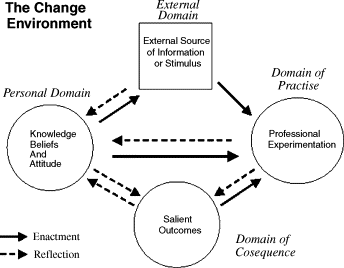Introducing our new Action Research programme

An exciting new online course is now available for teachers of all key stages.
Improving Computing Classroom Practice Through Action Research is a three week course that has just opened for sign-ups, and will start on 29 June.
The course doesn't teach computing subject knowledge or specific pedagogies; instead it focuses on giving teachers the skills they need to apply and evaluate new teaching ideas, practices, and tools. You will learn how to research, plan, execute, and analyse your own action research project to test new ideas in your classroom.
Course structure
The course is split into two parts. In part one, you’ll learn about:
- The fundamentals of educational research
- Framing your own research question
- Planning a research investigation
- Tools to collect and analyse experimental results
- Creating a research action plan
Part two will take place in late 2020, giving you plenty of time to trial ideas in the classroom. This second part focus on evaluating, presenting, and sharing your research project.
Why is this course important?
While curricula have shifted in favour of computing over the last decade, the subject's success lies in the hands of those teaching it. Helping practitioners develop skills to teach computing is one of the main reasons for the existence of organisations like Computing at School (CAS), and more recently, the National Centre for Computing Education (NCCE).
As teachers will know, significant changes can take time. Sure, we often come away from a training session with lots of ideas and a few quick wins which can be applied almost the next day. However, adopting new pedagogies, approaches, and assessment strategies requires long-term planning, adaptation, confidence, and engagement. New ideas need to be connected and situated within the educator’s regular working practices.
As a trainer, I’ve worked with educators with a diverse range of needs, priorities, and professional challenges. I’ve come to recognise that alongside great content and experiences, educators need to have agency over their development. Providing such opportunities is crucial for lasting impact.
The best way to think of CPD is as a holistic practice that isn't restricted to workshops and training courses. With this understanding, we can see that our professional learning can take place through action research-based programmes and be built around other teachers, known as a community of practice. Both can be viewed through a sociocultural lens, which means that the environment and interaction surrounding the CPD plays a key part in the teacher’s learning. In particular, action research connects the learning process with the educator’s regular practice and routines, which the literature describes as a form of situated learning. There is plenty of research to support classroom-based action research as a hugely effective form of CPD. Here are two examples.
IMPTG Model
In 2002, Clarke and Hollingsworth introduced their Interconnected Model of Professional Teacher Growth (IMPTG), a framework for explaining how educators may develop their practice.

This model identifies four domains within teacher learning as well as connections between them. Crucially there is no direct link between the external domain (CPD, reading, etc.) and the domain of consequence, where we would hope to observe impact in the classroom. Instead (according to the model), impact is driven by the educator’s beliefs, knowledge, and attitude (personal domain), and experimentation in the classroom (domain of practice). While educators may take different routes through this model or be impacted by different interventions, effective CPD should address both the personal domain and domain of practice.
The TICE Project
Back in 2016, the Teacher Inquiry in Computing Education (TICE) project supported a small group of teachers in conducting their own action research projects as a means of CPD. The project and subsequent research paper identified a number of beneficial outcomes, including:
- Individual teachers' self-efficacy
- Opportunity to develop as a critical self-reflective practitioner
- Development of research skills
- Teaching aspects of computing differently
- Engagement in further professional learning
“Teachers learned a range of new skills in terms of being able to plan and execute a small-scale research project, and their data shows that they gained an understanding of how children learn computing and ways in which deeper learning of computing can be facilitated. This makes it an important approach for computing professional development where teachers can develop an awareness of good pedagogical strategies”. - Sue Sentance et al., 2018
You can read more about TICE and find the research projects of the participants.
Join our research revolution!
Sign up to the course today to supercharge your classroom practice.
About the author

James Robinson, Senior Learning Manager (Pedagogy), Raspberry Pi Foundation